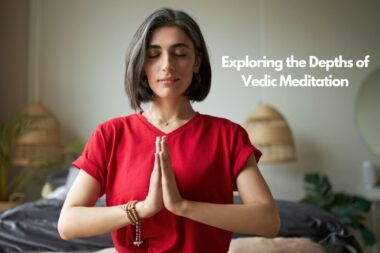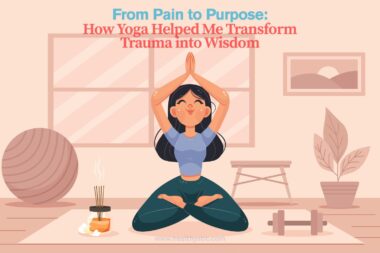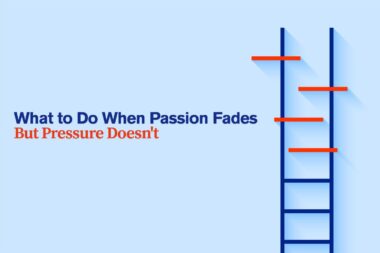Here’s how you can stay empowered rather than paralyzed by your panic about getting vaccinated for COVID-19.
Contemplating the COVID-19 vaccine will likely cause anxiety in any human brain for reasons we all know and don’t have to unpack here. This isn’t about science, politics, or trendy opinions. It is about deciding to get the vaccine and being able to follow through.
For those of us with pre-existing anxiety issues, this decision can be anywhere from difficult to debilitating, so here are some techniques to help you tap into the thoughts causing these negative emotions, change the narrative, and refocus it to reclaim your power in the moment and for the long term.
After almost 40 years of suffering from a variety of anxiety and panic disorders, I learned three important things:
- Some level of anxiety is normal and I will always experience it
- Chronic anxiety and intense panic attacks won’t kill me, and
- I can use my anxiety to my advantage
Getting vaccinated is a great example to illustrate all three.
If you are feeling anxious about getting vaccinated, it is likely based on two thoughts: first, the vaccine itself and how it will affect your body, and second, the anxiety and or panic attack it will cause.
The first fear is rational, producing “normal” anxiety. Most people will get the shot anyway, deal with the side effects, and move on. But piling on the second fear can be just enough to paralyze.
You may want the shot theoretically but believe the anxiety will be too intense, so you avoid it. Or you may wonder how you will discern between the physical symptoms of a panic attack and those of an adverse reaction to the vaccine.
Ask anyone with pre-existing anxiety after being injected with anything if they feel their throat closing, and the first thing they will feel is their throat closing! That’s just how the human brain works…sometimes.
Here’s my story
When I asked my general practitioner how I would be able to tell the difference, she said the allergic reaction feels nothing like a panic attack. “Your tongue will swell, and your throat will close.”
“Exactly,” I thought.
I had a 45-minute drive to my vaccination. My brain immediately went to “How will I ever drive home alone without having a debilitating panic attack? And how will I know if that is a reaction, perhaps deadly, to the shot?”
Brains like to tell stories and want to label things because they’re driven by efficiency. I’ve had tens of thousands of panic attacks in cars. So the minute I had that thought, my brain latched on and began catastrophizing. But even while I noticed those thoughts rushing in, I also remembered that while traumatic at the time, I could recall exactly how I made it through every one of those panic attacks and lived to tell about it.
So when it was my turn to sit on a folding chair in the “shaving” aisle of Walgreens—where they monitored people for an adverse reaction to the vaccine—and wait for my throat to close, my anxiety made me wildly uncomfortable, but I stayed calm. After the requisite 15 minutes, I left the store for my drive back home. I could feel my brain almost forcing the fearful thoughts to the front of my mind.
“Maybe my allergic reaction was delayed. If the vaccine didn’t kill me, the panic attack surely will.” This old, recognizable pattern that I had long ago managed and disarmed was looking for a new playground. “You may have found freedom from anxiety, but not pandemic anxiety!” it said.
At that moment, it would seem I had two options: believe my brain’s disastrous story or push it away and ignore it. If you believe, you remain controlled by your anxiety. If you ignore it, it will scream louder until you acknowledge it, like a child. So I found a better option. Door number three: listen to my story with curiosity and compassion, a four-step process.
Here’s how you can stay empowered
First, question it. Why is my brain going there? What is the correlation? What is the possible benefit?
Second, console it. Of course, you are scared. We’ve experienced countless panic attacks on drives, and they can be terrifying. But we are safe. I’ll keep you safe.
Third, recognize the separation you’ve created and fill that space between you and your anxious thoughts with love. It may sound strange to talk to your brain as if it’s separate from “you,” but this is how you take back your power. Your mind is like a child running around with a knife: It’s dangerous if not corralled and controlled.
Fourth, change the narrative. I feared getting sick from the vaccine and envisioned what it was doing inside my body. After years of sensorimotor OCD (in which you become hyperaware of bodily functions), this was a big deterrent to getting vaccinated in the first place. So how would I manage it this time?
Your anxiety brain will make up stories that sometimes make no sense and have no basis in reality. And guess what? They work. They make you panic. So if that can work, why not create another story that soothes, calms, and empowers?
After the shot, I envisioned Bruce Banner changing into Hulk. It looked painful while it happened, but it gave him a superpower. I thought the vaccine was doing exactly that to me, from the inside out. It may come with a little discomfort, but it will be worth it in the end.
Final Thoughts
You can believe whatever you want to believe. Regardless of the science, politics, trendy opinions, and even your own brain. Once I chose to believe the science, I then chose to believe, based on decades of experience, that my throat wasn’t really closing, and that I could sit in the fire and ride out the panic.
I chose to believe my brain was simply doing what it does best by finding an efficient way to categorize that drive home. I chose to believe the scared part of me deserved compassion. And I choose to believe the vaccine will do more good than harm. That’s a superpower, too.

Wendy Tamis Robbins, author of The Box: An Invitation to Freedom from Anxiety, is a lawyer by day, writer by night, and a professional panic attacker. Despite near-crippling anxiety, she worked her way through Dartmouth College and law school before, in her 30s, she set her mind to overcome the anxiety and panic attacks that increasingly limited her life. For the past 20 years, she has worked in corporate finance, creating and preserving affordable housing and lending to under-served communities. Learn more at www.wendytamisrobbins.com.





































